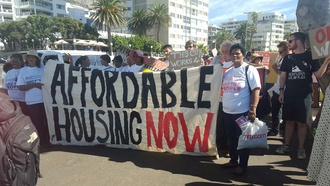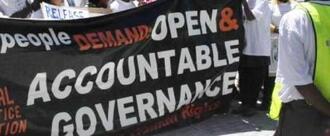- Featured
- Clean air
- Climate justice
- Consumer Rights
- Corporate Accountability
- Data access
- Early Childhood Development
- Economic fairness
- Education
- Electoral fairness
- Environmental justice
- Food justice
- Gender based violence
- Grants/social assistance
- Health
- Housing and infrastructure
- Industry interference
- Land Justice
- LGBTQIA+ rights
- Media/ information access
- Public transport
- Racism
- Reparations
- Safety
- Sanitation
- Service Delivery
- Sexual and Reproductive Rights
- Social justice
- Unemployment
- Womxn's rights/ gender equality
- Workers' rights
- More
-
Pay Nurses in Western Cape the 'Danger Allowance'If Parliament can pay its security personnel, popularly known as 'bouncers', can be paid danger allowance [1] then nurses working psychiatric patients and other public servants can be paid the same. If the government paid its employees well then maybe the attitudes of those employees would drastically change when they deal with members of the public. Presently, in the ongoing strike by mortuary workers, danger pay has once again been one of the demands made [2]. Danger pay was first introduced during the 1999 wage negotiations for state employees such as traffic inspectors, prison warders and social workers. [1] EFF rejects danger pay for Parliamentary bouncers, Mxolisi Mngadi for News24. 7 May 2017. [2] Agreement to end mortuary strike on the cards, eNCA. 21 June 2017.1,967 of 2,000 SignaturesCreated by Amandla.mobi Member
-
PMB GHS, act against racismRacism should not be tolerated, ever. There is no excuse. Real and permanent changes must be made. Read more about the incident here: https://www.thedailyvox.co.za/racism-thrives-at-pietermaritzburg-girls-high-school-ndapwa-alweendo/1,268 of 2,000 SignaturesCreated by Zama Nzimande
-
End the Violence: Commit to a National Plan on Gender-Based Violence"Work it out..”, according to sources, this is what the police said to Karabo Mokoena who had opened a case of assault against her boyfriend [1]. One month later, she went missing and was found dead allegedly at the hands of the very same man. Like many other women and children, the institutions meant to protect Karabo effectively sent her to her death. Everyday women are killed, raped and brutalised, not by monsters, but the men with whom we share our beds, homes, workplaces, churches and streets. The men in our daily spaces. Across the country, thousands are raising their voices in outrage, saying this has to come to an end. Right now we have a real shot to take our collective outrage and call for Minister Shabangu to commit to the development of a National Strategic Plan on Gender Based Violence. Karabo Mokoena, Lerato Moloi, Bongeka Phungula and Popi Qwabe are just of few of the many who have been murdered in 2017 so far. We are tired of being killed, maimed and brutalised at the hands of men. We call for an end to this senseless violence unleashed on women’s bodies. We want effective justice now! Let's stand together and call for Minister Dlamini to commit to a National Strategic Plan on Gender-Based Violence (GBV). No more women must die on our watch. Violence against women has always been a serious problem in Mzansi. Recently there has been more coverage of gruesome rapes and murders everywhere in our country. From 3-year-old Courtney Pieters [2], who was raped and murdered by a family friend and tenant earlier this month, to the rape of elderly women in Willowvale [3] and recently the rape of Tambai Moloi, a lesbian from Soweto [4], it is clear that all women are at risk and it is a matter of "when" not "whether" it will happen. These cases, and the many more that occur each year, show that we are still a very long way from eradicating GBV in South Africa. This calls for everyone to stand together and demand that the Department of Women commit to a National Strategic Plan on GBV now. [1] https://www.timeslive.co.za/sunday-times/news/2017-05-14-horrific-details-of-karabo-mokoenas-gruesome-murder-emerge/ [2] http://www.news24.com/SouthAfrica/News/courtney-pieters-was-raped-twice-before-being-murdered-court-hears-20170517 [3] http://www.news24.com/SouthAfrica/News/eastern-cape-man-20-arrested-for-rape-of-woman-76-20170108 [4] http://www.sowetanlive.co.za/news/2017/05/18/lerato-was-killed-by-people-she-knew-it-was-a-hate-crime The following organisations are part of the campaign as of August 2016: Sonke Gender Justice MOSAIC Amnesty International South Africa Centre for Sexuality AIDS and Gender People Opposing Women Abuse South African Care Workers Forum New World Foundation Access Chapter 2 Love 167 Thando Care Service and Development Centre Justice and Women TB/HIV Care Association Sex Workers Education and Advocacy Taskforce Centre for Human Rights Medecins Sans Frontieres South Africa Thohoyandou Victim Empowerment Programme Treatment Action Campaign Trauma Centre for Survivors of Violence and Torture World AIDS Campaign International Sekwele Centre for Social Reflection Greater Rape Intervention Programme People Against Suffering Oppression and Poverty Gender Links Centre for the Study of Violence and Reconciliation Women’s Legal Centre Pietermaritzburg Agency for Social Community Action Grassroot Soccer Gender, Health & Justice Research Unit South African Faith and Family Institute Tears Foundation Rape Crisis Cape Town Trust Sun of Joy Foundation Rock Girl Soul City NACOSA amandla.mobi2,810 of 3,000 SignaturesCreated by campaign to Stop Gender Violence

-
Revoke Enviroserv Shongweni Landfill LicenceEnviroserv has been in the news a lot lately for their toxic waste landfill site, which has angered the residents of Shongweni. But Enviroserv’s crimes are not only limited to those in the current new cycle. They have been polluting in black communities, such as Ntshongweni, Dassenhoek, KwaNdengezi, Buxfarm and Cliffdale, for over 15 years and have left struggling communities with a mountain of health issues including; headaches, fatigue and nose bleeds. There is has been no science-specific research that measures the long term impacts of Enviroserv’s pollution and the health issues experienced by communities. A targeted surveillance system that maps out the social, health and environmental impacts created by hazardous waste needs to be developed to avoid far more serious health issues like cancer in the future. Enviroserv’s legal appeal process that is challenging DEA’s decision to suspend their operations license, sends a clear message that Enviroserv thinks our lives are cheap and that profit matters more to them then our health, environment and quality of life. EnviroServ is ignoring our constitutional rights and the increased incidence of illnesses apparently related to the foul odour, not to mention the psychological effects living in the stench of a toxic landfill is having on us. By refusing to tell us what is going into the landfill and what its possible toxic effects on humans are, you are only serving to increase our fear that the health effects are being caused by the hazardous, ineffectively or untreated waste being accepted at the landfill.30 of 100 SignaturesCreated by Amandla.mobi Member
-
Investigate PMB police brutality and torture allegations5 young men aged 19-30 were shot and killed in Hilton, Pietermaritzburg on the 29th of March 2017 by the K9 unit. A lot is unclear about the deaths, but the families have evidence to believe that the boys were running away from the police at the time of their shooting. The deceased had never been charged and found guilty by any court of law. Even if they were, nothing warrants or justifies the inhumane way in which the Police handled the situation. Following their gruesome murder, these young men's photos were then splashed on social media by these unthinking insensitive Police without consent or knowledge by their families thus inflicting further cruel punishment on the grieving families. The purpose of this inhumane act is not known. This is the worst form of cruelty and no family must ever be put through this again at the hands of the very people who are supposed to serve and protect them.201 of 300 SignaturesCreated by amandla mobi member

-
Ahmed Kathrada Foundation Operation Winter Warm 2017• To get young people to understand the plight of the underprivileged. • Young people to look at the causes that lead to others needs especially in winter. • Give young people the opportunity to give back to the underprivileged communities and homes. • Create networks to work with other organizations as part of our youth outreach programme. • Equip young people with mobilising skills. • Teach young people door to door campaigning. • Building engagement and collaboration between organisations. • Providing practical assistance and knowledge to plan and prepare for winter. • Facilitating a collaborative approach to communication across organisations; ensuring that vulnerable households receive correct, clear, consistent, useful and actionable advice and information. • This will provide the youth with effective planning skills. • This will teach the youth the art of giving without expecting anything in return.15 of 100 SignaturesCreated by Busisiwe Nkosi
-
Introduce Khoekhoe language as an additional languageThe indigenous Khoesan communities are amongst the very first inhabitants of South Africa. Yet after 23 years SA still does not have a single Khoesan language recognised as an official language. We demand that this be rectified and that the Khoekhoe language be introduced as an additional language in South African schools.80 of 100 SignaturesCreated by Denver Plaatjies
-
Halt Upgrades to Muizenberg Police StationIt makes no sense to upgrade Muizenberg police station considering some poor communities urgently require more police resources, including stations. According to Statistics SA, there were 27 murders reported in Muizenberg last year, while 279 people were killed in Nyanga and another 161 in Khayelitsha during the same period. “Our argument is that more officers are deployed to areas where there is no need and this confirms our suspicion that SAPS continues to serve only white communities.” "There are more police resources deployed to areas where there is no need. This situation confirms our suspicions that SAPS continue only serve white communities." “Police must stop prioritising white and rich communities, because we know people who live in those areas have access to private security.”168 of 200 SignaturesCreated by Amandla.mobi Member
-
Prioritize housing and land needsAs residents from Freedom Park, south of Johannesburg, we marched on 20 March 2017 to the ANC headquarters, in a bid to demand the rights to occupy vacant land on the outskirts of the area in which we live. With the ANC set to hold a policy conference in June to discuss, among other issues, how to expropriate land for the benefit of communities as tabled in its Strategy and Tactics Discussion Document, we call on you to stand in solidarity with all landless people across South Africa by supporting this campaign. “We have been living in Freedom Park as tenants for almost all our lives. None of us here owns any land. All we are asking for is for government to give us some piece of land, and we will build our own shacks.” “We are members of the ANC, and we trust it to listen to our cries. All we want is land.” We have adopted this Eleven Points Program for Freedom Park Backyard Dwellers to advance the fight for decent and habitable housing for all. 1. Occupy land and erect structures for as long as there is a backlog of decent Housing for all. 2. Resist evictions and fight not to be evicted or be moved to other places where we do not wish to live. 3. Fight for closing down of all municipal anti-land invasion units and all private eviction squads, such as the Red Ants, that municipalities outsource this function to. 4. The struggle of the Marikana occupiers in Philippi (Cape Town) is a victory for the landless people of Azania and it must be defended. The Marikana occupation and struggle in Philippi has resulted in a Constitutional Court decision that it is unlawful for anti-land 'invasion' units to knock down a structure or structures that have been built by occupiers as a home to live in, regardless of how long the structure has stood or whether there is furniture in it. 5. Occupations are a legitimate means for us to survive poverty and unemployment and speed up the process of land redistribution that the government promised but continues to fail to deliver. 6. We note that even under the so-called democratic dispensation the state continues to uphold the property rights of the rich, while the poor are expected to rot away under intolerable living conditions. 7. We reject the state's zero tolerance policy on occupations that is enforced by municipalities, the police and the courts. It is a contradiction to talk about “land reform” – as the government has again been doing recently – while at the same time denying people’s right to occupy land and punishing them if they do. 8. We note that over many decades of forced removals and pass laws the Black masses in occupied Azania, in defiance of apartheid, won the right to occupy land and build structures/shacks. This must be defended and extended in order to ensure adequate and just land redistribution for the landless Black masses dispossessed of their land through colonialism and apartheid. 9. Today, those who occupied land prior to 1994 are not threatened with eviction; while those who occupy today face the state’s harsh and repressive zero tolerance policy on occupations. We reiterate that it is a contradiction for the state to talk about land reform and yet deny people the right to occupy the land of their ancestors and birth. 10. This makes a mockery of the new democracy and effectively criminalizes our struggle for decent and habitable Housing. 11. By failing to address the housing crisis, by allowing the appalling conditions that people face daily and by failing to provide decent and habitable housing for all the state and it's functionaries are the real ‘criminals’. Those who occupy land and struggle to improve their living conditions are guilty of nothing other than pursuing the rights the Constitution and government have promised them.47 of 100 SignaturesCreated by Amandla.mobi Member
-
Send a message to the Fees Commission*Our leaders had a year to meet the demands of Fees Must Fall, and they have failed. But we have an opportunity to change this. This time last year we didn't have the ‘no-fee’ varsity report released, or had commitments from government to address illicit financial flows, but this year we do. That’s why we are calling for Minister Nzimande to stop stalling and implement his own no-fee varsity report, and for Minister Gigaba to commit at least 1% of Mzansi’s GDP to higher education. In October 2015, thousands of amandla.mobi members rallied together and forced Minister Nzimande to release the No-Fees Varsity Report. The report sets out 12 recommendations showing how free university education for students from low income households can be provided [1]. This affirms the demands of the student movement collectively known as ‘Fees Must Fall’ and proves that the Minister can take decisive action to put an end to financial exclusion in higher education. Since the release of the report we have been pushing to shift the public debate towards calls for Minister Nzimande to progressively implement the recommendations of the report. The time to stop overlooking us has come! Academics have spoken out on the chronic underfunding of Mzansi’s universities [2]. In fact, Mzansi’s government spends below the continent’s average on higher education, at 0.75% of its GDP. The proportion of GDP for Senegal and Ghana is 1.4% [3]. Mzansi’s higher education budget for the 2015/16 financial year is R30 billion. If the government were to spend 1% of GDP on higher education, this would amount to R41 billion. That’s almost four times the reported shortfall caused by 2016’s freeze on fee increases [3]. The recommendation by the Department of Higher Education and Training that university fees for 2017 should not be increased by more than 8% is in stark contrast to the events of last year where the government instructed universities on what to do. It is an open invitation for universities to determine what margin they increase fees by, provided that they remain within the Minister Nzimande’s recommendation. We need to shift the focus back to addressing the chronic underspending on the country’s universities. [1] It’s a national crisis, academics tell Nzimande, News24. Oct 22, 2015. [2] Free education is possible if South Africa moves beyond smoke and mirrors, Salim Vally for The Conversation. Sep 21, 2016. * The information you submit will be sent to the Fees Commission, the Presidency and the Department for Higher Education.323 of 400 SignaturesCreated by Amandla.mobi Member
-
Prioritize social housingToday we announce that we have embarked on a symbolic occupation of the Helen Bowden Nurses Home and the Woodstock Hospital to demand Urban Land Justice in Cape Town. We are Cape Town residents from across the race and class divide. We are residents of Woodstock, Sea Point, Marikana informal settlement, Blikkiesdorp and Khayelitsha. We are from communities at the forefront of the housing and segregation crisis in our city. We stand in solidarity with the struggles of all poor and working class people who still live homeless under bridges; in shacks and informal settlements at the edge of our city; in backyards and wendy houses on the Cape Flats; and in store rooms and domestic quarters in former white suburbs. The colonial and apartheid governments divided our city, controlled where we could live and forcefully removed our families from their homes. Our parents and grandparents resisted and overcame racial oppression. They fought for the rights to dignity, justice, equality, and adequate housing that our Constitution now guarantees. But we still experience the violence of apartheid spatial planning and segregation. A dignified life with access to good services and decent work is reserved for a few. We still experience violent evictions from our homes by private property owners and our government. This, while private landlords, developers and banks are making obscene profits. Land must be for people, not for profit. We are angry that our City, our Province and our National governments have failed to acknowledge our struggles for land and for affordable housing. They have failed to bring Black and Coloured people back into our city. We believe that symbolic and peaceful civil disobedience is now justified in the defence of our Constitution and our Constitutional rights. As we have now made our home here for over 48 hours, the law is clear that we may not be evicted without an order of court. We call on the Province and the South African Police Service to act lawfully and refrain from using violence or other tactics of state oppression against us.37 of 100 SignaturesCreated by Amandla.mobi Member
-
Glenmore community demands answers!The people of Glenmore want to exercise their rights and have realised that for Glenmore to develop they need to rise up as a community and demand to be taken seriously. Services rendered should be done as per specifications, should be time bound and someone must account for work done that is below the specified standard. Black contractors appointed by the municipality should ensure that their work leaves a lasting legacy for generations to come and not to produce a "final product" that will need to be demolished/redone in a short period. Black business should strive for excellence, positioning them for leadership. Proper social facilitation should be the cornerstone for any and all community development projects. We can improve service delivery and fight corruption in our Municipality by ensuring all Service Delivery Agreements (SDAs) are public and easily accessible to all. Communities need not resort to violent protest. Transparency now!189 of 200 SignaturesCreated by LINDOKUHLE VELLEM
.png)

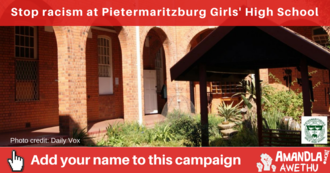
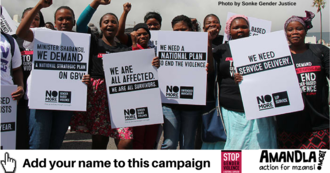.png)
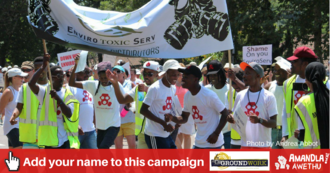
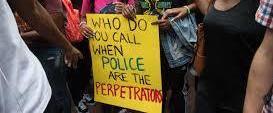
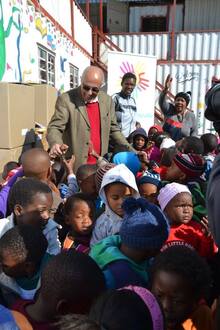.jpg)
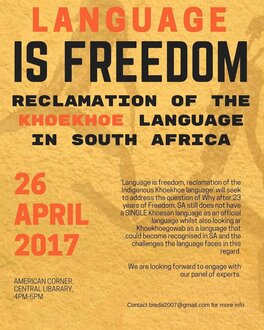
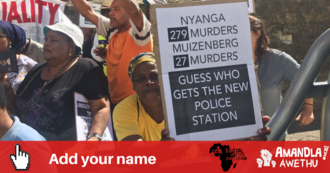.png)
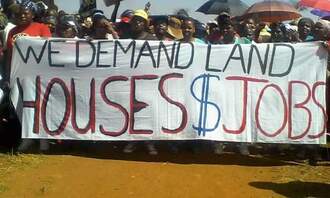
.png)
